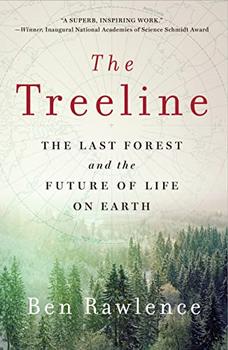Summary | Excerpt | Reviews | Beyond the book | Read-Alikes | Genres & Themes | Author Bio

Deception, Danger, and Alligators in the Everglades
by Rebecca RennerThe word "poaching" conjures disturbing images of charismatic megafauna like elephants and rhinos being killed for their tusks by violent criminals. But in reality, most poaching looks very different — overhunting, overfishing, or even gathering protected plants is less dramatic, but just as ecologically destructive. Rebecca Renner pulls back the curtain on poaching happening right under our noses in her debut book, Gator Country: Deception, Danger, and Alligators in the Everglades, and in the process, she weaves together personal stories and differing perspectives on what it means to be stewards of the land.
The narrative centers around a sting operation to catch alligator egg poachers, led by Jeff Babauta, a by-the-book Florida wildlife officer who has spent most of his life in South Florida and most of his career protecting animals. He agrees to go undercover for the Florida Fish & Wildlife Conservation Commission and develops an alter ego, Curtis Blackledge, who is as disorganized and disheveled as Babauta himself is punctilious and clean-shaven.
As Blackledge, he opens an alligator farm and begins making connections with fellow farmers and alligator hunters in an attempt to infiltrate a tightly closed subculture rumored to be rife with poachers. We meet people straight out of a "Florida Man" meme, like Wayne, who ropes in Blackledge to help with a trophy alligator hunt where he is scamming the hunters by lying about the animal's size. Eventually, Babauta (as Blackledge) is pulled into the orbit of a shady farmer named Robert, who takes over Blackledge's farm for his egg harvesting and hatching operations.
Blackledge joins Robert's crew on alligator egg hunts where they flout regulations about going into nests and harvest eggs in amounts well above legal limits. The colorful cast of characters again recalls stereotypes about Florida residents but also goes beyond those tropes — entire families go on hunts, helping out to make additional money, and a retired wildlife biologist joins in, unbothered by the illegal and ecologically destructive poaching activities. They're not depicted as heroes, and some certainly do come across as villains, but the picture isn't black and white.
Throughout these stories of people traipsing through swamps and spending dark nights in the wilderness, Renner paints vivid portraits with her descriptive language, bringing these mysterious landscapes to life in all their beauty. A Florida native herself, Renner rediscovered much about the Everglades during her research for the book, and she openly shares her renewed appreciation for these ecosystems and cultures.
She also weaves in stories about a fabled alligator poacher named Peg Brown, who lived in the Everglades in the mid-20th century. Chapters on his supposed exploits alternate with the main narrative about Babauta's sting operation. Through these tales about Brown, Renner examines the thin line between survivalist and criminal, between hunter and poacher, and raises thought-provoking questions about how good ideas like national parks have also deprived people of their ancestral lands and livelihoods. "Championing environmental causes by ignoring the people who live there…does not work, because to ignore the people is to ignore the land itself," she summarizes.
Renner also explains how over-engineering of the Everglades and its natural hydrology damaged alligator populations in the first place (see Beyond the Book). It was hunters — only later called poachers — who lost their symbiotic connection with the species and their sources of food and income due to property development, agriculture, and the establishment of the national park. It was these people more than anyone who had a real stake in protecting alligators, yet they and their descendants have been pushed into what is now categorized as criminal activity.
These side discussions are interesting, but as the main narrative picks up speed they begin to feel shoe-horned into the story. The climax of the undercover operation is also rather anticlimactic, unfortunately. Arrests happen, punishments are relatively light, and the federal U.S. Fish and Wildlife Service declines to get involved because of questions over Babauta's evidence-gathering methods.
There is a sense of some justice perhaps — at least one illegal operation was disrupted — but the reader is left wondering if Robert or any other poachers will actually change their behavior, or just get better at not getting caught. It's hard to believe the Everglades and its wildlife are any safer due to this particular operation.
Despite that disappointment, Gator Country provides an important glimpse into South Florida subcultures, and it dispels myths and simplistic misconceptions about people who live off the land and are just trying to get by. Renner poses probing questions about overzealous development, environmental damage, and who is really taking more than their fair share from the natural world.
![]() This review was originally published in The BookBrowse Review in January 2024, and has been updated for the
November 2024 edition.
Click here to go to this issue.
This review was originally published in The BookBrowse Review in January 2024, and has been updated for the
November 2024 edition.
Click here to go to this issue.

If you liked Gator Country, try these:

by Ben Goldfarb
Published 2024
An eye-opening account of the global ecological transformations wrought by roads, from the award-winning author of Eager.

by Ben Rawlence
Published 2023
In the tradition of Elizabeth Kolbert and Barry Lopez, a powerful, poetic and deeply absorbing account of the "lung" at the top of the world.
Your guide toexceptional books
BookBrowse seeks out and recommends the best in contemporary fiction and nonfiction—books that not only engage and entertain but also deepen our understanding of ourselves and the world around us.